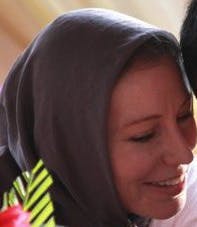The Jungle Book of Love
Jan 21, 2015
First story
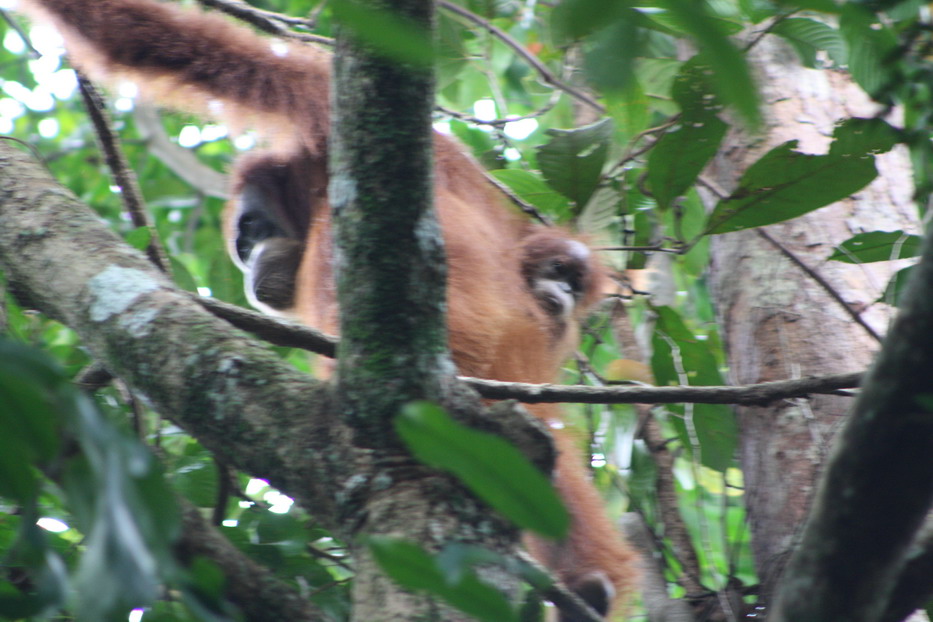
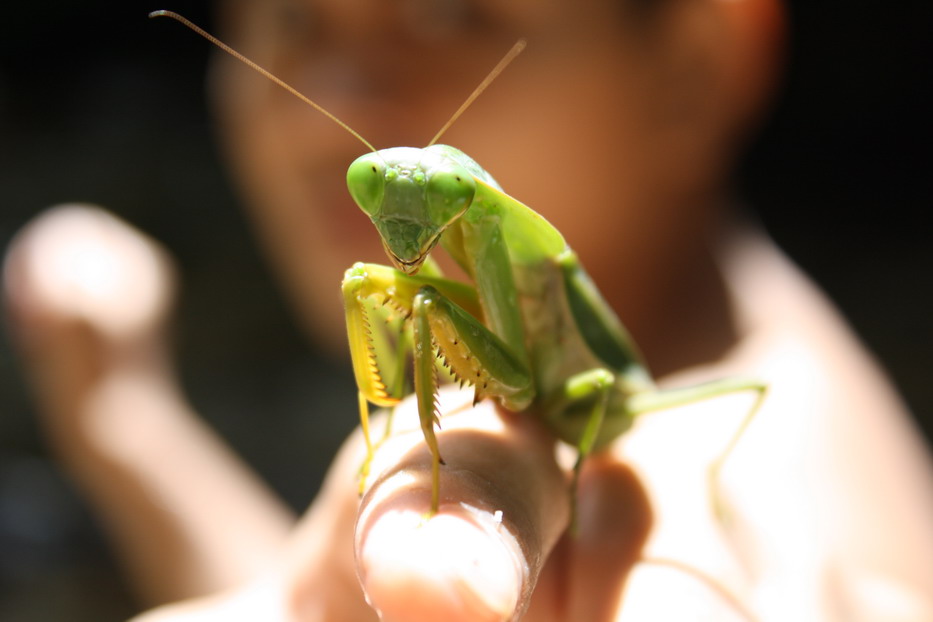
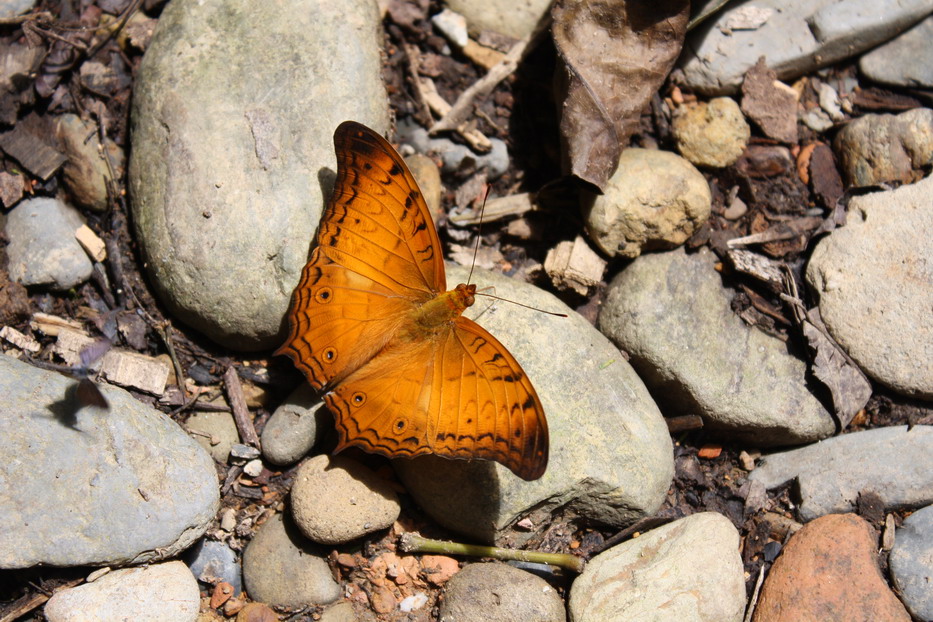
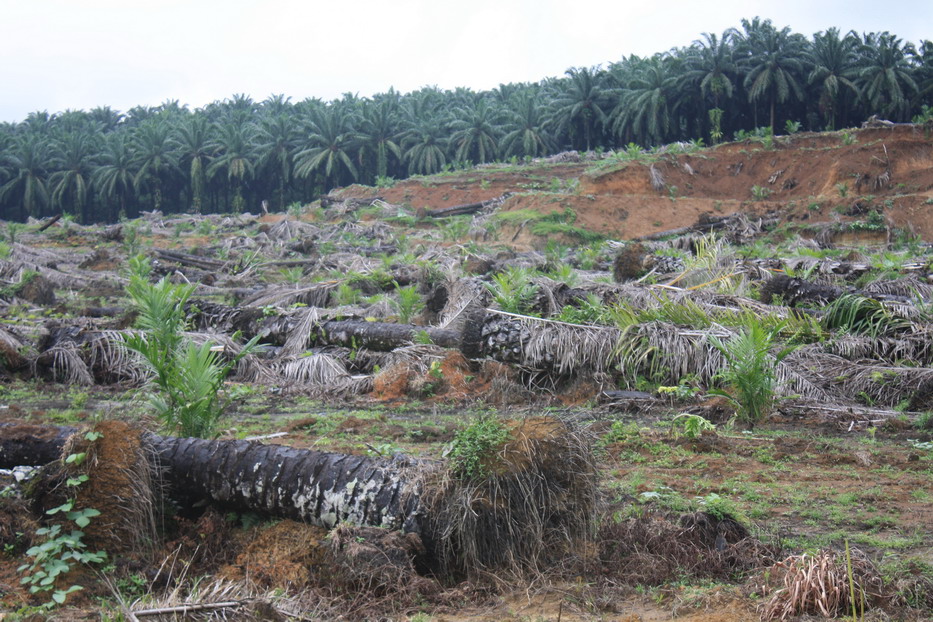
“Cicadas,” explains Doni, “live in the ground for seventeen years. When they dig themselves out to find a mate, the males make that sound you hear.”
Around us the Sumatran jungle is alive with the whirs and chirps of male cicadas playing their musical organs, each song subtly distinct as they serenade the females hidden in the foliage.
“When the males are successful,” Doni continues in English honed by years as a jungle guide in Bukit Lawang, “they can do it up to sixty times a day.”
Jasmine’s big blue eyes grow round under her bandana.
“Sixty?”
“Sixty,” he affirms. An impressive number indeed compared to us mere mortals, and this factoid on the virility of the male cicada sets the tone for our journey, an overnight trek to one of Doni’s favourite campsites, on the banks of a tributary to the Bohorok River. It helps that we’re traveling as couples—Darma and I, married just over a year, and Doni and Jasmine, in the throes of a burgeoning new romance. The jungle is a perfect place for a romantic getaway. Fecund and diverse, it’s layered with so many shades and textures of green it’s like a perpetual waterfall of foliage cascading from the sky.
We pass through groves of rubber trees, “condom trees,” as they’re known locally, growing around the jungle perimeter. The bark of their slender trunks is scored to allow the thick white sap to drip into coconut shells, to be collected and sold around the world for the manufacture of rubber products, including, naturally, condoms.
But no close encounter would be complete without a little danger. Suddenly Doni, walking ahead with a machete in his hand, orders us to a halt. Eyes ever on the lookout, he has sighted a tree snake caught by surprise in our path, head up high in attack position, the rest of him coiled like rope on the ground. My first instinct is to turn and run back down the path, though I’ve encountered snakes in the jungle before. On my last trek I saw a black cobra flee into the undergrowth and a moonsnake, white and iridescent as an opal, sleeping wrapped around a tree branch.
My curiosity about this one gets the better of me and I turn to take another look. Slick and black, perhaps three feet long, the snake slips across the path, not once taking his eyes off us. As he makes his escape, I wonder who is more frightened: the snake, who may well intuit the danger we pose to him is far worse than any damage he could inflict, or we who are more used to the pedestrian dangers of city life.
Certainly Doni must be the most fearless. He shows us the scar on his forearm where he was bitten by a black mamba and survived due to his jungle skills: If you’re ever bitten by a snake, he instructs, tie your limb tight above the wound to slow the tide of poison through your body. Cut two small slices above and below and apply the juice of the talas, a type of philodendron (Doni picks a large heart-shaped leaf and squeezes the stem so the sap oozes out). Then, don’t move. Trying to walk will only dispatch the poison to your vitals, and possibly dispatch you as well.
Besides learning about animal lore and jungle survival skills, we’re here to see orangutans. Known as “people of the forest” in the Indonesian language (orang means person; hutan, forest), Sumatran orangutans are found nowhere else in the world. Orangutans in Borneo are a distinctly different species, with darker hair and the alpha males having large fleshy cheek pads. Sumatran orangutans have longer, lighter orange fur, and the males grow beards like humans. Sumatran orangutans share 96.4 per cent of our DNA, and are slightly more closely related to us than the Borneans, after chimpanzees, gorillas and bonabos.
Since orangutans are among our closest relatives, to encounter one in the wild is akin to encountering our own selves as we might have been had we not climbed down from the trees so many years ago, to fight our predators on the ground and develop our destructive warrior nature.
Now we pose a serious threat to all living things, including ourselves. Only about five thousand Sumatran orangutans remain due to rainforest destruction, and Sumatran tigers, elephants and rhinos, as well as countless varieties of other animals, trees and medicinal plants, are also greatly endangered. The single greatest threat to their habitat loss is the development of palm oil plantations that produce the world’s supply of biofuels, as well as palm oil used in products that line our supermarket shelves, including soap, shampoo, packaged foods and lipstick.
Yet we humans are a complex lot. We love that which we destroy, and some of us are drawn to see our gentler relatives and find a similar peace among the trees, having escaped the chaos and pollution of the city.
The jungle is a city unto itself. Industrious black ants, about an inch long, are carrying their leafy loads across a rotten log, and termite armies march in formation as they compost leaves on the forest floor, turning it to humus for more plants to grow. The cicadas are doing their thing, and the siamans, a swift-moving type of monkey with keen hearing, hoot back in answer to Doni’s calls, voices echoing across the valleys of Gunung Leuser National Park.
Though it’s rainy season and the day is cool and overcast, the perfect day for a trek, we’re covered in sweat from the constant humidity. We circle the small mountain, grabbing onto roots, hanging on to vines, slogging through the orange mud as it sucks off our flip flops (no high-tech trekking gear on this trip), picking the odd leech off our heels or slapping at the good-for-nothing mosquitoes needling our calves.
At the top of the mountain we stop to listen to the sounds drifting up from the valley below, the beat of bongos in Bukit Lawang and the call to prayer from a mosque filtering through the trees as it wends its way to the heavens. Here on the ridge is the smooth musculature of a tualang tree prized for its hard wood in making furniture, and a hoary old cinnamon tree from which we sample small slivers of bark, the familiar phenolic flavor on my tongue reminiscent of my mom’s cinnamon coffee cake.
We stop and perch on a fallen tree for a lunch of nasi goreng, Indonesia’s favorite meal of spicy fried rice with egg, tempered by cool slices of tomato and cucumber. We’re peeling the hairy skins off rambutans and savoring their fruits when Doni stalks silently into the trees, eyes focused upwards. He puts his finger to his lips with one hand and beckons to us with the other.
Above in the waterfall of green flashes a long shaggy arm, almost the same orange color as the earth beneath our feet. Then a face emerges—the calm, placid face of an orangutan. Yet there is a touch of worry in her countenance; perhaps it is the worry that comes to all mothers when they bear their children because this orangutan has a baby on her back. The baby’s face appears, eyes blinking, looking about her treetop world with wonder just like a human baby. Then the most incredible thing happens: the baby looks directly at us, completely innocent and unafraid.
I tilt my camera to my eye, focus it beyond the darkness of the trees to the clear space encircling the defenseless pair, at once eager to capture their image but at the same time apologizing to the mother in a whisper, sorry for disturbing her if she happens to see me or hear my camera click, sorry that I am trespassing on her world, and especially sorry that my kind make her and her baby so unsafe.
If orangutans feel disturbed they will often throw branches and sticks down on the interlopers to scare them off. If that doesn’t work, they may pull their lips back in a grimace to look as menacing as possible. And if that doesn’t work, a semi wild may charge after you, but a wild one will climb higher out of sight, like this mother does.
Orangutans share our emotions of love and fear. Mina, a female orang well known in the area, was abused as a baby when she was sold into Indonesia’s notorious pet trade, still thriving despite governmental measures to prevent the trade of endangered species. Mina may have been taken from her mother the standard way orangutan babies are taken in the pet trade. The mothers are shot out of the branches while the poachers wait below to catch the baby. For every baby sold into captivity as a pet, 20 more die in the fall.
When Mina arrived at the Bohorok Rehabilitation Center near Bukit Lawang she was already traumatized, and in the years since her release into the park she has attacked and bitten people on numerous occasions. Now that Mina has a new baby of her own she seems to have calmed somewhat, her anger quelled by her new capacity to love. But like an abused child, the scars of her experience will never completely heal.
On the other hand there’s Jaki, the “hugging orangutan” who adores people and will envelope them in bear hugs despite warnings that we are not to make physical contact. This is because if we are carrying any virus or disease, we can easily transmit them to orangutans and further contribute to their demise. I’ve seen a baby who died in this way, of a mysterious wasting illness, from a mother who regularly came to the feeding platform at the rehabilitation center, touched by the forest rangers there.
If orangutans set their minds on touching us, however, it’s difficult to dissuade them. Once, Abdul, a semi wild male who loved to show off for the cameras, reached out and squeezed my bottom as I walked past. Orangutans have the strength of up to six men, and although they’re gentle you don’t want to tangle with one. That terrifying vice-like grip on my posterior was an experience I’ll never forget. Later I was sad to find out that naughty Abdul, who had difficulty keeping his hands to himself, had been shot and killed by a farmer when raiding his crops.
One problem is the lack of food supply in their diminishing habitat. To help remedy this we’ve brought along some young fruit trees for planting—Jasmine a lychee, Darma a rambutan and me a mango, planting them as we make our way to the campsite. I half wish that Jaki would show up and give me a hug, but she doesn’t materialize. Instead, we encounter a roving band of macaques nibbling on low-growing fruits, their tiny children with the faces of wizened old men scampering among the branches. One older macaque comes over and perches on the end of a branch to get a good look at us.
The climb down to the river is steep, filled with slippery mud and slick roots. When we reach the bottom, guided by the sound of the river, we’re exhausted and relieved to be welcomed by the two camp cooks who have already pitched the tents and prepared dinner.
The river flowing under the low hanging branches is too inviting for us to resist for long. We dive in to cool our bodies, wash off the orangutan-colored mud. The river is soothing in its unchanging rhythm, like the sound of a seashell when you hold it to your ear. Darma says, “Rivers are the veins of the world. They carry water like blood. Don’t you think so?”
And I say: “You know what the rocks are then? The bones.”
“And the trees are the lungs.”
We breathe deep, the peace of this jungle world gracing us. I could stay here forever, forget about all about my worldly ambitions, trying to keep up with the lightning pace of modern life and negotiating the manic world of traffic jams and arbitrarily drawn political lines that divide people and set them against each other.
Right now his world feels more real, more solid, more constant, more true. Yet it is far more fragile because we are a race of beings who, in our consumptive desire, can easily forget the true value of what we already have. Instead we focus on acquiring the hottest cars, the latest technological wizardry, the most expensive looking house possible, the widest screen TV or the latest fashion that’s either supposed to express our individuality or make us look like everyone else.
The jungle tears away all such illusions. It warns us that if we continue to gobbling up the earth, soon nothing of true value will remain.
Let us, just for a while, escape all that and stay here on our mother’s back, gazing about with wonder. Let us watch the infinite variety of butterflies in their ephemeral glory, allowing us to share a moment of their brief life span, maybe twelve days at most, ours not much longer in God-time. Let us play with this wonderful praying mantis whose waspy eyes focus directly on my camera before he makes an agile leap onto the lens. Let us brush the feathery leaves of the putri malu, the “shy princesss” plant, which shrink at the touch of a fingertip yet contain a potent medicine for cicada-like virility, earning its reputation as jungle Viagra. Let us watch the miraculous flight of the angel butterfly that takes us by surprise with its sudden appearance, floating upwards on angelic white wings. Let us stay and play in the river like the original lovers did before they poisoned themselves with the fruit of ignorance.
Are we going to evolve beyond this ignorance? Will we allow this world, with all its creatures found nowhere else, to continue to exist?
For now our small band of romantics simply revel in the moment. We enjoy this meal of fresh-caught river fish, do magic tricks by candlelight, scream at the tickle of the giant, harmless ants on our necks (me), and fall asleep to the steady pulse of the river as it flows forward, a constant reminder of all that is real.
“I am the happiest man in the world,” Doni says. And we believe him because, at this moment, we feel the same.
